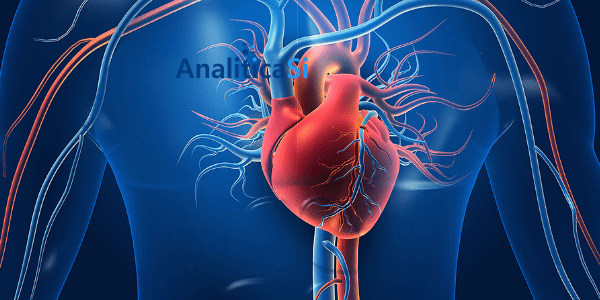According to the American Heart Association’s 2017 Heart Disease and Stroke Statistics Update, Cardiovascular Diseases remain the leading cause of death in the United States and the world. With this class of conditions being so common, a list of heart diseases can help someone determine what risk factors they or their loved ones may have.
Arming yourself with basic knowledge about these five most common cardiovascular diseases can help you adjust your health and lifestyle to avoid heart-related health complications in the future.
1- Heart Failure
Heart failure, also called congestive heart failure, is caused by the heart not pumping blood as well as it should. It does not mean that the heart has stopped beating completely, as the name suggests. The heart continues to pump blood, but not at a high enough rate for the body to function. The fatigue and shortness of breath that can result from untreated heart failure can greatly interfere with everyday activities such as walking or climbing stairs.
2- Stroke
Stroke is considered heart disease because the condition is centered around blood flow. However, stroke is caused by a problem with blood flow to the brain rather than the heart. Ischemic stroke accounts for 87 percent of all strokes and is caused by the blockage of a blood vessel that carries blood and oxygen to the brain. Without blood and oxygen, parts of the brain can be damaged or die if not treated early. Hemorrhagic strokes can have various causes other than blockages, such as vascular malformation or abnormal growth of the blood vessels of the brain.
2. Heart Attack
A heart attack, or myocardial infarction, usually tops the list of cardiovascular diseases in the United States—statistically and anecdotally. In the United States, someone has a heart attack every 40 seconds. While TV shows and movies usually portray a heart attack, external reactions do not shed light on what is happening inside the body.
A heart attack occurs when the heart muscle is cut off from the oxygen it needs to operate. This happens because the blood flow that carries that oxygen is greatly reduced or stopped completely. It is caused by atherosclerosis, or a slow buildup of plaque, which contains fat, cholesterol, and other substances, in the coronary arteries. Blood clots can form around the plaque, which can slow or block blood flow and lead to a heart attack.
4. Arrhythmia
A heart arrhythmia is an abnormal rhythm of the heart: too slow, too fast, or at an irregular heartbeat or pace. Without a proper rhythm, the heart does not work effectively. The heart may not be able to pump enough blood to deliver oxygen and nutrients to other organs.
5. Complications of Heart Valves
Like arrhythmias, heart valve complications can cover a wide variety of abnormalities. Stenosis means that the valves in the heart do not open normally enough to allow blood flow. Regurgitation occurs when the valves of the heart do not close properly, leading to leakage of blood. Like the arteries in your heart, heart valves also need to function properly to avoid life-changing complications.
This list of heart diseases can help you identify the most common heart diseases. Well, Genesis Diagnostics can answer any questions you have about cardiovascular diseases and how you can improve your heart health and quality of life through healthy diet and lifestyle choices.


One response
Love the article. I want to talk. Please contact me by email